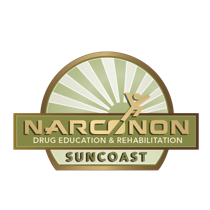The Key to Successful Interventions: Preparation

Addiction is a significant issue in our nation, and many families have to watch loved ones struggling with it every day. This situation can be even more difficult when the addict doesn’t think they have a problem or are refusing help. In these cases, it may require an intervention to convince the individual to attend treatment.
However, jumping right into an unplanned intervention may not have the best results. It needs to be properly done with enough tact to help the individual decide to get help for themselves. So, here’s a closer look at how to tactfully hold an intervention for someone struggling with addiction.
What Is the Intervention Definition?
Before going any further, it is important to understand what an intervention is. Firstly, an intervention should be a planned process involving family, friends, and other loved ones. Interventions may include friends, family members, clergy, counselors, or professional interventionists. It’s a good idea to also involve the treatment center that the individual will be going to.
This group will confront the individual about their addiction and the impacts it has had on them and those around them. The loved ones may write letters beforehand that they will read to the individual during the intervention. The end goal of an intervention is to convince the individual to attend treatment for their addiction.
Interventions: Check Emotions at the Door
Coming at an addict with anger or an accusatory attitude during interventions is not the best route. This often leads to them trying to leave the intervention or just retaliating with their own anger. Instead, those involved in the intervention must be tactful in their delivery.

In other words, tell the addict the truth, but also consider how they feel and will react. Show compassion to the addict and let them know everyone is there because they care.
However, the intervention also needs to let the addict know that everyone is worried about them and show them that their addiction is causing harm. So, here are some tips for holding a tactful intervention.
- Choose the Right Time and Environment: Hold the intervention somewhere the addict is comfortable, such as within their own home or a parent’s home. This can help prevent them from feeling trapped. Additionally, timing is everything. The intervention should ideally occur when the individual is sober.
- Choice of Words: As mentioned above, try not to be aggressive or accusatory, as this can lead to the individual simply withdrawing and not speaking. Instead, speak with compassion and choose words carefully. Try to use “I” statements rather than “you” statements. Write carefully crafted letters beforehand that tell the addict how they have impacted their loved one’s life without making it a blame game.
- Be Careful About Emotional Reactions: It can be tempting to react to certain statements or actions with emotional outbursts, but this doesn’t help the case. Once again, this can make the addict feel like everyone is trapping them or just being aggressive.
- Involve an Interventionist: If the family is having difficulty creating an appropriate format for the intervention, involving an interventionist can be a good idea. An interventionist has experience in holding interventions most effectively and will be able to help set up the best-case scenario.
- Early Intervention: The best idea is to intervene as soon as addiction becomes an issue. The longer that it continues, the worse it will get, and it may be harder to convince the individual to consider getting treatment later on.
Narconon Is Here to Help with Drug or Alcohol Addiction
If you are seeking treatment for your loved one, then Narconon is here to help. We offer an effective holistic treatment program that aims to rehabilitate an individual’s abilities and life skills to overcome addiction. To learn more about our program, call us or fill out our online contact form.


